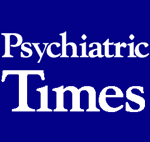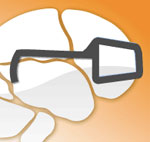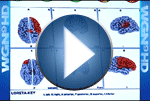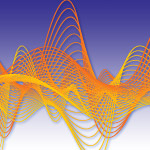What is Neurofeedback?
Learn how self-regulation training allows the central nervous system to function better.
ADHD
Learn how this family deals with the daily challenges of raising a child with ADD/ADHD.
Autism
An interview with four families dealing with the challenges of raising a child with Autism.
Chronic Pain
Meet Caroline Grierson, a nurse practicing neurofeedback for pain management, in association with Dr. Prager, a leading pain specialist at UCLA.
Peak Performance
Neurofeedback for Peak Performance, featuring the work of Rae Tattenbaum and Susan Othmer.
PTSD
Regaining Control
In this powerful video a USMC Captain with multiple deployments in Iraq shares his experiences in dealing with PTSD, and how neurofeedback treatment at Marine Corps Camp Pendleton aided in his recovery.
Explaining Neurofeedback
I was asked to do a short video giving my "elevator pitch," the shortest version possible of my "what is neurofeedback" description for those who are completely uninterested in the question.
Synchrony with a meditator
Hear from an experienced long term meditator in India as he tries synchrony neurofeedback at 10 Hz Alpha, and again at 40 Hz Gamma.
NF and the Placebo Effect
Neurofeedback is just placebo says critic. What's the truth?
Brian's Legacy discussion
Siegfried Othmer on his book Brian's Legacy. www.BriansLegacy.com
Salvation Army Bell Shelter
The Salvation Army Bell Shelter in Los Angeles, CA, has implemented a new tool to help people get back on their feet: Neurofeedback.
What Do I Do Next?
The Path to Recovery
What Is the Long-term Outlook?
Playing Safe
News & Media
School-based Brain Training Shown to Alleviate ADHD
Source: bostonglobe.com By Deborah Kotz | February 17, 2014
With more than one in 10 children diagnosed with attention deficit hyperactivity disorder, parents and doctors alike have been eager to find alternatives to prescription stimulant medications like Ritalin or Adderall. Some of these options include computer programs that train the brain to increase attention span and a therapy called neurofeedback where a practitioner teaches children how to keep their brain calm and focused.
Read Article on Brain Training & ADHD
Train The Brain: Using Neurofeedback To Treat ADHD
Source: npr.org by Jon Hamilton
Listen to the story on npr.org
Neurofeedback Gains Popularity and Lab Attention
Source: nytimes.com by Katherine Ellison
Read full article on nytimes.com
This is neurofeedback, a kind of biofeedback for the brain, which practitioners say can address a host of neurological ills - among them attention deficit hyperactivity disorder, autism, depression and anxiety - by allowing patients to alter their own brain waves through practice and repetition.
First Direct Evidence of Neuroplastic Changes Following Brainwave Training
Source: ScienceDaily | March 12, 2010
Read full article on sciencedaily.com
Significant changes in brain plasticity have been observed following alpha brainwave training. "The novel finding may have important implications for future non-pharmacological therapies of the brain and calls for a serious re-examination and stronger backing of research on neurofeedback, a technique which may be promising tool to modulate cerebral plasticity in a safe, painless, and natural way."
EEG Neurofeedback for Treating Psychiatric Disorders
Source: Psychiatric Times. Vol. 19 No. 2 - Alondra Oubré, Ph.D.
Read full article on psychiatrictimes.com
 Neurofeedback, also called electroencephalogram (EEG) biofeedback or neurotherapy, is an adjunctive treatment used for psychiatric conditions such as attention-deficit/hyperactivity disorder, generalized anxiety disorder, posttraumatic stress disorder, phobic disorder, obsessive-compulsive disorder, bipolar disorder, depression and affective disorders, autism, and addictive disorders (Moore, 2000; Rosenfeld, 2000; Trudeau, 2000).
Neurofeedback, also called electroencephalogram (EEG) biofeedback or neurotherapy, is an adjunctive treatment used for psychiatric conditions such as attention-deficit/hyperactivity disorder, generalized anxiety disorder, posttraumatic stress disorder, phobic disorder, obsessive-compulsive disorder, bipolar disorder, depression and affective disorders, autism, and addictive disorders (Moore, 2000; Rosenfeld, 2000; Trudeau, 2000).
Neurofeedback: An ADHD Treatment That Retrains the Brain?
Source: U.S. News & World Report by Megan Johnson | September 10, 2009
Read full article on usnews.com
 Neurofeedback, also called EEG biofeedback, has been under investigation as a treatment for epilepsy and ADHD since the 1970s. Putting it to use on children with attention deficits has logical appeal. Studies suggest that in ADHD, the brain generates insufficient beta waves, which are associated with focus and attention, and an overabundance of lower-frequency theta waves, produced during periods of daydreaming or drowsiness.
Neurofeedback, also called EEG biofeedback, has been under investigation as a treatment for epilepsy and ADHD since the 1970s. Putting it to use on children with attention deficits has logical appeal. Studies suggest that in ADHD, the brain generates insufficient beta waves, which are associated with focus and attention, and an overabundance of lower-frequency theta waves, produced during periods of daydreaming or drowsiness.
Neurofeedback Has Been Found to Improve Cognitive and Artistic Performance
Source: BioMed Central Ltd. - by Tomas Ros, Merrick J Moseley, Philip A Bloom, Larry Benjamin, Lesley A Parkinson and John H Gruzelier. © 2009 Ros et al; licensee BioMed Central Ltd.
Read full research study on eeginfo.com
 By enabling individuals to self-regulate their brainwave activity in the field of optimal performance in healthy individuals, neurofeedback has been found to improve cognitive and artistic performance. Here we assessed whether two distinct EEG neurofeedback protocols could develop surgical skill, given the important role this skill plays in medicine.
By enabling individuals to self-regulate their brainwave activity in the field of optimal performance in healthy individuals, neurofeedback has been found to improve cognitive and artistic performance. Here we assessed whether two distinct EEG neurofeedback protocols could develop surgical skill, given the important role this skill plays in medicine.
Your Thyroid and Adrenals
Source: VoiceAmerica Health & Wellness: Primal Body – Primal Mind Radio with Nora Gedgaudas
Listen in at voiceamerica.com
 Nora explores the increasingly common issue of thyroid and adrenal dysfunction and how the optimal functioning of both are inextricably connected. Diet and nutritional approaches are a front line and foundational approach to addressing the health of your endocrine system.
Nora explores the increasingly common issue of thyroid and adrenal dysfunction and how the optimal functioning of both are inextricably connected. Diet and nutritional approaches are a front line and foundational approach to addressing the health of your endocrine system.
Nora welcomes Dr. Janet Lang, founder of the Restorative Endocrinology Program™ and respected educator in the field of hormonal health to discuss what you need to know about the health of your thyroid and your adrenals.
In the second half of the program, Nora welcomes back Susan Othmer of the EEG Institute to discuss the impact of Neurofeedback on thyroid and adrenal issues commonly seen and how Neurofeedback can play an integral role in recovery and/or management of these conditions.
Wired To Heal with Neurofeedback
Source: blogtalkradio.com - Hosted by Andrea R. Garrison | May 14, 2009
To listen to this interview, press the play button on the multimedia player to the right of this text.
Dr. Siegfried Othmer the Chief Scientist for the EEG Institute goes onlinewithandrea to discuss Neurofeedback and how it is used to help conditions such as Anxiety, Autism, Cerebral Palsy, Depression, Seizures, Post Traumatic Syndrome, ADD/ADHD, Sleep Disorders, and many others. This interview runs about 2.5 hours.
Brain Training to Treat ADHD Symptoms
Source: ADDitude Magazine by Pamela Michaels, Maggie Jackson, Carl Sherman, Ph.D.
Read full article on additudemag.com
 Learn how to treat ADHD symptoms with neurofeedback, working memory training, and meditation - alternatives to ADD medication for children and adults.
Learn how to treat ADHD symptoms with neurofeedback, working memory training, and meditation - alternatives to ADD medication for children and adults.
Media Watch: Neurofeedback
Source: WGN-TV | February 4, 2009
Watch video at wgntv.com
 Feature segment on Neurofeedback from WGN-TV in Chicago, Il.
Feature segment on Neurofeedback from WGN-TV in Chicago, Il.
Alternative ADHD Treatment: Neurofeedback
by Pamela Michaels
Read full article at additudemag.com
Can neurofeedback really help your child? Here's what you need to know about this alternative ADHD treatment.
Cody Miller was diagnosed with attention deficit hyperactivity disorder (ADD ADHD) in first grade. While her behavior improved with medication, she experienced unacceptable side effects.
"I didn't care about anything," says Cody, now 14. Her parents stopped the meds, and Cody began behaving aggressively toward her parents, her friends, even her pets. Her mother turned to neurofeedback, an alternative ADHD treatment that uses brain exercises to reduce impulsivity and increase attentiveness.
Nondrug Options for ADHD - Biofeedback; allergy treatment; vision therapy
by Pamela Michaels
Read full article at life.familyeducation.com
 In biofeedback therapy, children with ADHD wear electrodes on their head and learn to control video games by exercising the parts of the brain related to attention and focus. Research to date suggests not only that children enjoy this therapy; it actually works as well as medication.
In biofeedback therapy, children with ADHD wear electrodes on their head and learn to control video games by exercising the parts of the brain related to attention and focus. Research to date suggests not only that children enjoy this therapy; it actually works as well as medication.
Real Stories...Real People...Real Success
by EEG Info
Watch all videos on YouTube.com
Clinicians talk about the Othmer's approach to Neurofeedback.
Physical Therapy for the Brain
 Read full article at eeginfo.com
Read full article at eeginfo.com
EVERY week for two years, Michael Hammett stared at a computer screen, trying to open a flower with his mind.
Hammett had developed a case of carpal tunnel syndrome so severe he needed surgery. But being a former opiate abuser, he refused to use the medications that would be needed to control the resulting pain. Having already tried physical therapy, he set his mind on another alternative: neurofeedback.
Good concept? It's a Brainwave
September 30, 2006
Read full article at timesonline.co.uk
 In a South London clinic a young girl is sitting with an electrode attached to her scalp, staring intently at a computer screen. Every so often there is a ping and on the screen, which shows a simple graphic of sea and sky, another bird appears, hovering above the water. That’s a signal that in the game Lara Hargrave, 10, is playing, using only her brain waves to control the action, she has just scored a point.
In a South London clinic a young girl is sitting with an electrode attached to her scalp, staring intently at a computer screen. Every so often there is a ping and on the screen, which shows a simple graphic of sea and sky, another bird appears, hovering above the water. That’s a signal that in the game Lara Hargrave, 10, is playing, using only her brain waves to control the action, she has just scored a point.
No, this isn't some new tweenage computer craze. It's a high-tech brain therapy called neurofeedback that Lara's mother Juliet claims has significantly alleviated her daughter's attention deficit hyperactivity disorder (ADHD). Practitioners claim that the therapy, which centres on the idea that the electrical activity in our brains can be trained to become healthier, has achieved dramatic results on attention disorders, depression, epilepsy, even incontinence.
